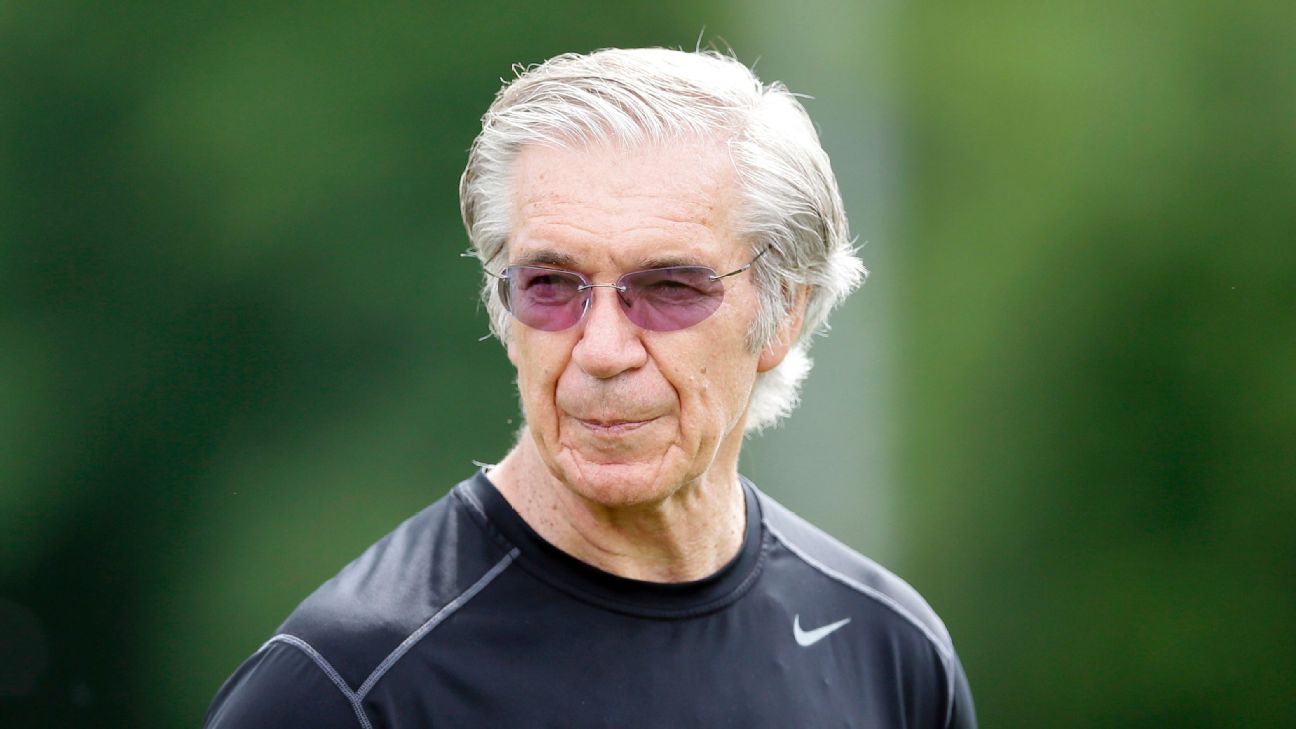Former Kansas City Chiefs head coach and Detroit Lions defensive coordinator Gunther Cunningham died Saturday after a brief illness. He was 72.
Cunningham devoted his life to the game of football after moving to the United States from Germany shortly after World War II. He spoke no English at the time and ended up finding football as a way to acclimate to the United States.
It became a lifelong love affair with the game, which took him to California for high school, Oregon for college and then all over the United States after graduation. He coached at Oregon, Arkansas, Stanford and California. He ventured to Canada for a year, in 1981, to work in the CFL.
Then he returned to the United States and spent the remainder of his career in the NFL with the Colts, Chargers and Raiders before moving to Kansas City to become the defensive coordinator and then head coach in 1999. He had a 16-16 record with the Chiefs in two seasons. He coached linebackers in Tennessee for three years before returning to the Chiefs as the defensive coordinator for the second time in his career.
The last five years of his on-field coaching career came with the Lions, where he was defensive coordinator from 2009-13. The team issued a statement Monday.
“Gunther Cunningham will forever be remembered as one of the great men of our game,” it said. “He left a lasting impact on every person who was fortunate enough to work alongside him during his more than 47 years as a coach — including 34 years in the National Football League, the final eight of which were spent here in Detroit. Our organization is truly honored and proud to have been included in his distinguished coaching legacy. We extend our heartfelt sympathies to his wife, René, and their entire family.”
After 2013, Cunningham moved into an off-field coaching role and wasn’t on the field for a game for the first time in at least 50 years. That included when he played in a high school game — or so he told the story — the week after he had the anterior cruciate ligament removed from his knee as a high school player.
“I lived without my left knee having an ACL all my life,” Cunningham told ESPN in 2017. “In those days, you didn’t get hurt. You just kept playing.”
That toughness was never questioned — by his players, his coaches or his future colleagues. While his football record was impeccable, Cunningham was often known for his storytelling in the media. He loved to rave about Leslie O’Neal and Derrick Thomas — two of his favorite Chiefs. When he was putting together his home office, Cunnningham’s wife told him she noticed a lot of Chiefs memorabilia.
“She went, ‘My God, this is a shrine to Derrick Thomas,'” Cunningham told ESPN in 2017. “I got emotional and I said, ‘Let’s not talk about that.’ There’s a tremendous amount of Chiefs memorabilia and because I was there off-and-on for 12 years and coached some really gifted players for you.”
As well as he could tell a yarn or dissect an offensive or defensive play on the field, he was equally well-versed on many topics. Becoming an American citizen, something he did in 2010, was a huge deal for him after spending almost his entire life in the country. Former British prime minister Winston Churchill was also one of his heroes. He first learned about the man from his grandmother when he was a child in Germany.
“I’ve seen or heard that speech he made about the island and how we’ll never stop fighting and we’ll never lose and how the Germans tried to bomb them into oblivion and the English survived, as they always have. They are one of the greatest powers in the world, in our history, and the English navy was a thing to be reckoned with in those days,” Cunningham told ESPN in 2014. “If I had my choice in life, other than being a football coach, I’d like to dive all over that water area between Europe and England and I bet you could find something there.
“A lot of things that haven’t been found that would lead us to understand our history better and where better to start than the island of England. To me, my generation growing up, that was the war and how they fought and how they survived, to meet people from there is an honor for me.”
Cunningham went to England in 2014 when the Lions played the Falcons at Wembley Stadium in London. He was excited to see the culture and to learn more about a place he had heard so much about as a kid but never got to spend any time in. Since leaving Europe as a child in Germany, he had only been back once since — on a vacation to Italy.
Football, of course, ended up getting in the way of a lot of traveling Cunningham had contemplated doing throughout his life. After Cunningham left the NFL, he joined Pro Football Focus, where he used the analytics skills he picked up in his later years in the league to help bolster the football portion of the company. He worked on passing his knowledge forward, teaching how he grades players and being part of an oversight group that made sure they were seeing things correctly.
He had set up a small office in a building in suburban Detroit to be his workplace, carrying the televisions up the stairs himself because Cunningham was a man who always liked to do what he could.
Cunningham is survived by his wife, Rene’, his sons Grant and Adam and daughter Natalie.
